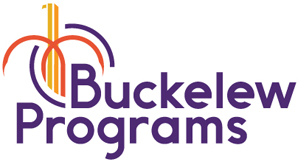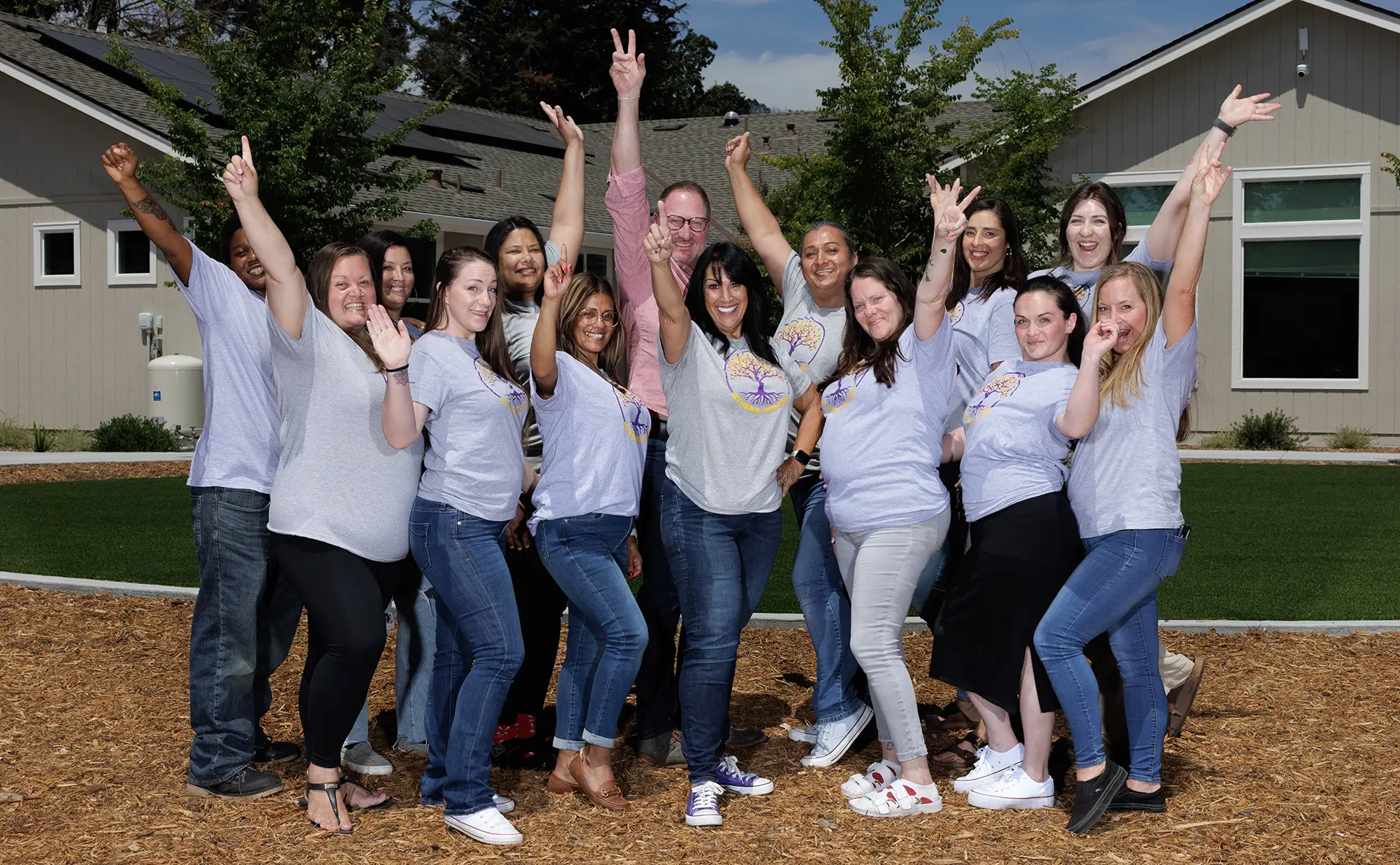
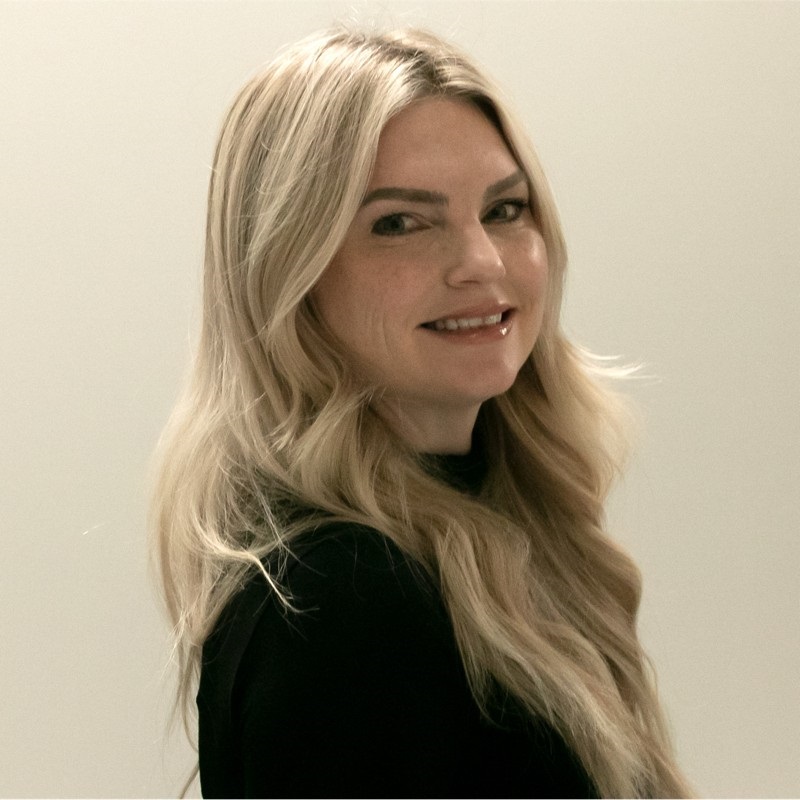
An alumna plays a key role in saving Athena House when its fate was uncertain | Brooke’s Story
In March of 2023, Buckelew Programs Board Member, Brooke Igleheart Ross, was named “Sonoma County Woman of the Year” by US Rep. Mike Thompson, who cited her commitment to supporting others in their recovery, saying, “She is an outstanding figure in our community, helping those who struggle with substance abuse to reintegrate into the workforce.” Brooke understands the value of support for those in the grip of addiction and commendation was especially sweet given Brooke’s formidable early life challenges and trauma. She turned to alcohol at an early age and soon found herself in and out of five different programs – all private and expensive. None of these worked. Living in her untreated addiction, she found herself facing its consequences, including mistakes at work and damaged personal relationships. And then, she was offered treatment at Athena House.
Click here To read the rest of her story.
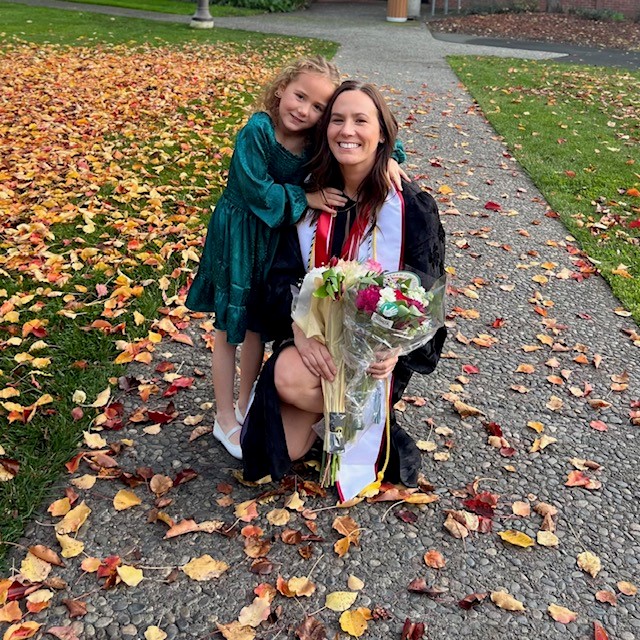
Natalee had been to more rehab facilities than she could count. Then Athena House changed the trajectory of the rest of her life | Natalee’s Story
I arrived at Athena House one day in May 2017, having just been sentenced by a judge to six months of treatment. My only possessions were the filthy clothes on my back. My yellow, translucent body was riddled with track marks and scars like a roadmap marking places I had been. At 25 years old, I had walked thousands of miles of life, but none in the right direction. I was broken and completely desolate of any hope. But hopelessness implies a feeling that can be felt, and during that time I knew only how to operate on an animalistic level. Everything in my life up to that point had been about survival. I was a shell of a person, unable to formulate or articulate any real feeling other than the instinct to run, which I always did.
Click here To read the rest of her story.
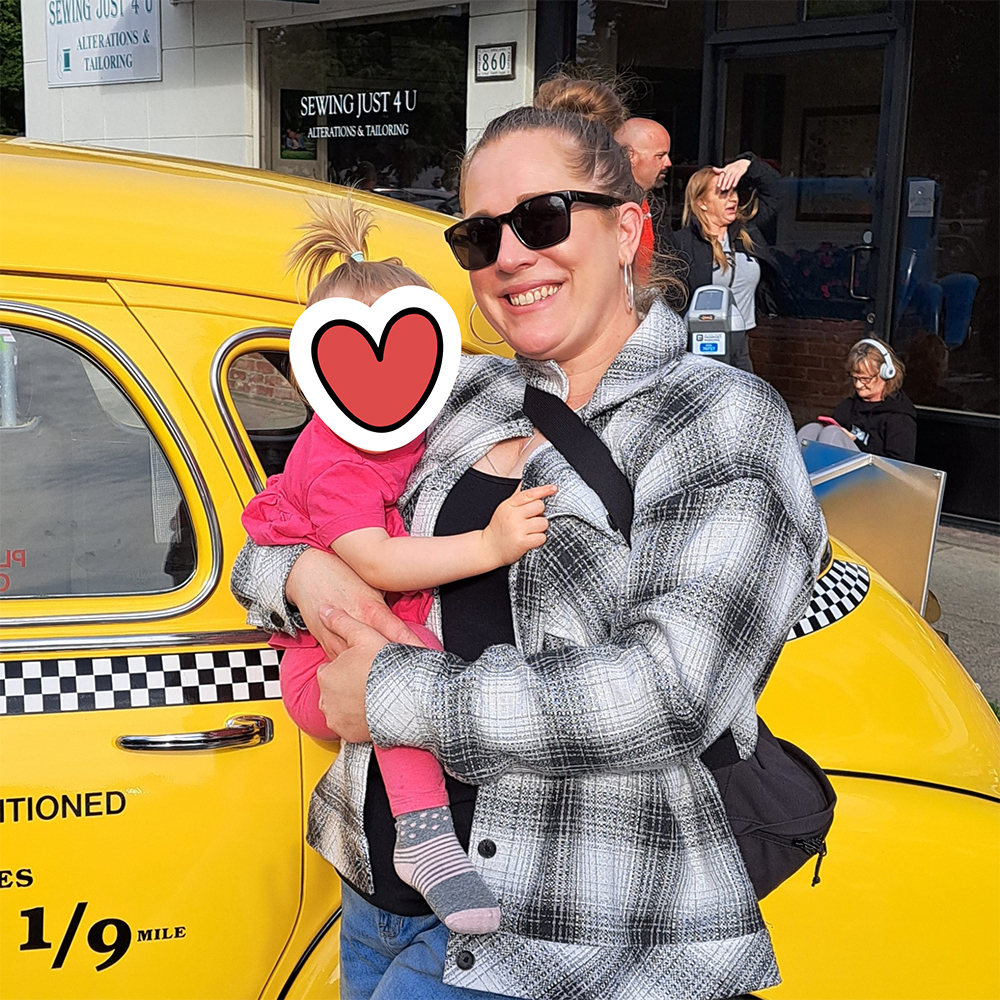
Athena House helps a person change their life beyond anything they could have imagined | Maggie’s Story
Ten years ago, my life changed drastically. That was when I walked through the doors of Athena House, via court order.
Before entering Athena House, I was broken, hopeless, desperate, selfish, and living solely for alcohol. I even felt unworthy of an opportunity to get help. I never thought my life could be anything other than what it was or had been. I never imagined I would be free from alcoholism. My family worried I would die, and slowly I lost my most meaningful friendships and distance grew between anyone with whom I had once been close.
But then, I was welcomed by a community of women suffering the same plight. I successfully completed six months of treatment at Athena House, six months of aftercare, and four months of sober living at Hope Village. I eventually began working at a large healthcare provider as a receptionist. I was later promoted as a supervisor, then as an operations manager for a multi medical and surgical specialty clinic and remain in this role, doing meaningful work in my community.
Click here To read the rest of her story.
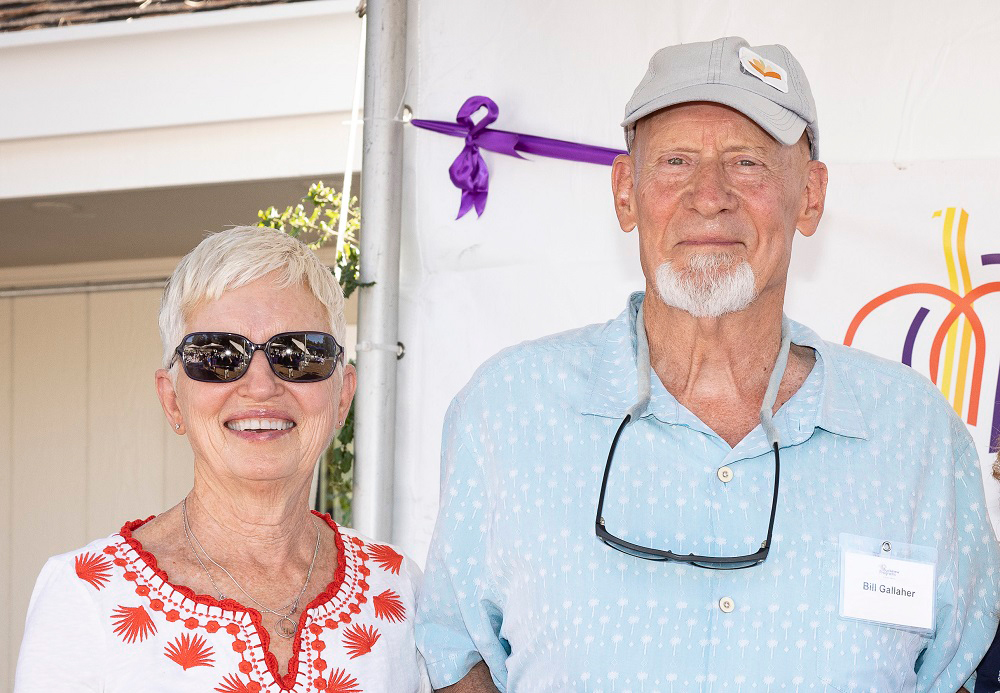
Our History with Athena House and Hope Village | Cindy and Bill Gallaher
Athena House was a vaguely familiar name and program to us when we first read about its impending closure and sale in July of 2022. What caught our attention was the imminent displacement and need for housing for the 40 vulnerable women who were in various points of their recovery journey. Our first thought was to try to purchase the three acres and hoped for a quick cosmetic upgrade (if needed) and turnaround so that women and children could continue living there. Since we were on vacation when we became aware of the urgent situation, we called upon an employee and friend to contact the Realtor representing the sale. We agreed on a price and entered a contract. Upon our return, we were able to visit the property and quickly realized this was far more extensive than a cosmetic fix.
Click here To read the rest of their story.
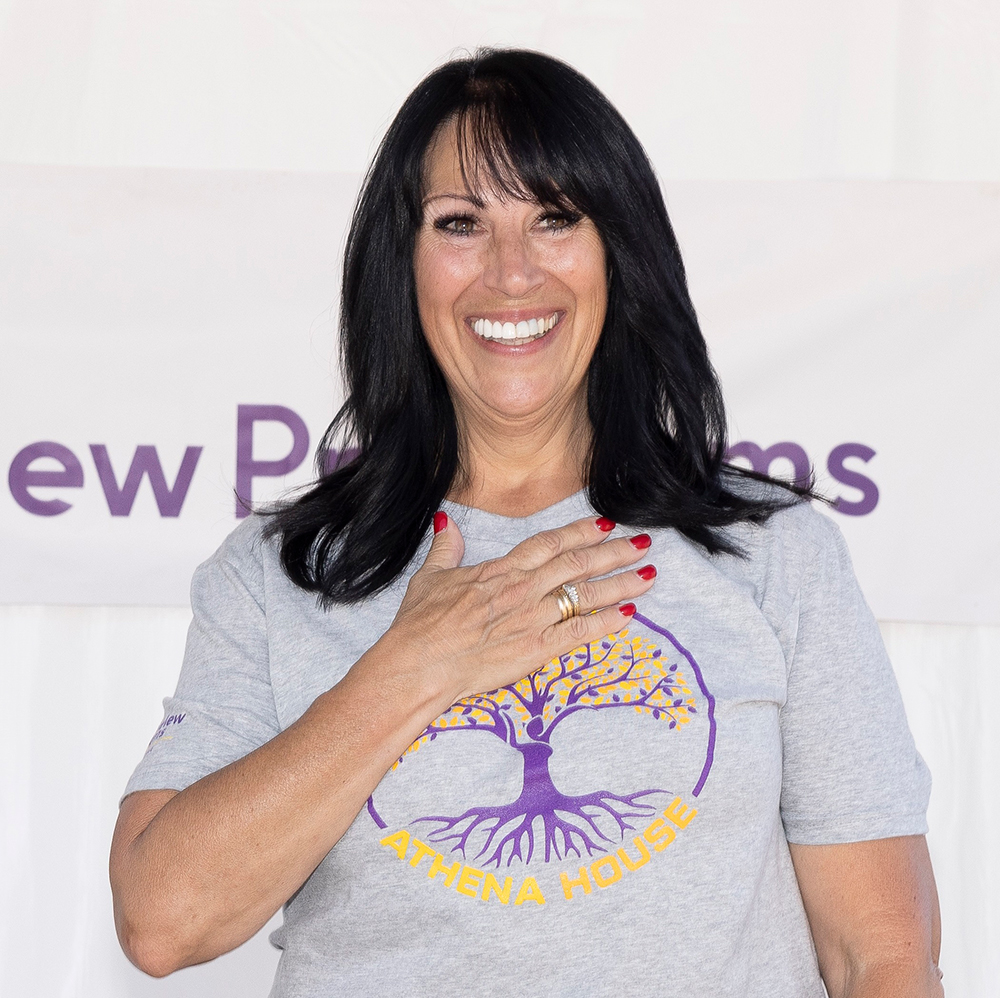
Athena House Saved My Life | Sylvie’s Story
Sylvie De La Cruz is the director of Athena House and Hope Village
I’m here today because Athena House saved my life.
If you had met me 25 years ago, I would not have been able to look you in the eye. I grew up with a lot of trauma and abuse, always scared and feeling like I had no value in the world. I certainly wasn’t treated like I had value in the world.
That’s what sent me down a dark path where I had no hope. I spent a good part of my adult life not believing I could be loved. I didn’t think life could be anything else but miserable. I made a few suicide attempts and thought, “Look, I’m even a failure at that.”
I couldn’t yet see it from a different perspective: I wasn’t meant to die. I was meant to live.
Click here To read the rest of her story.
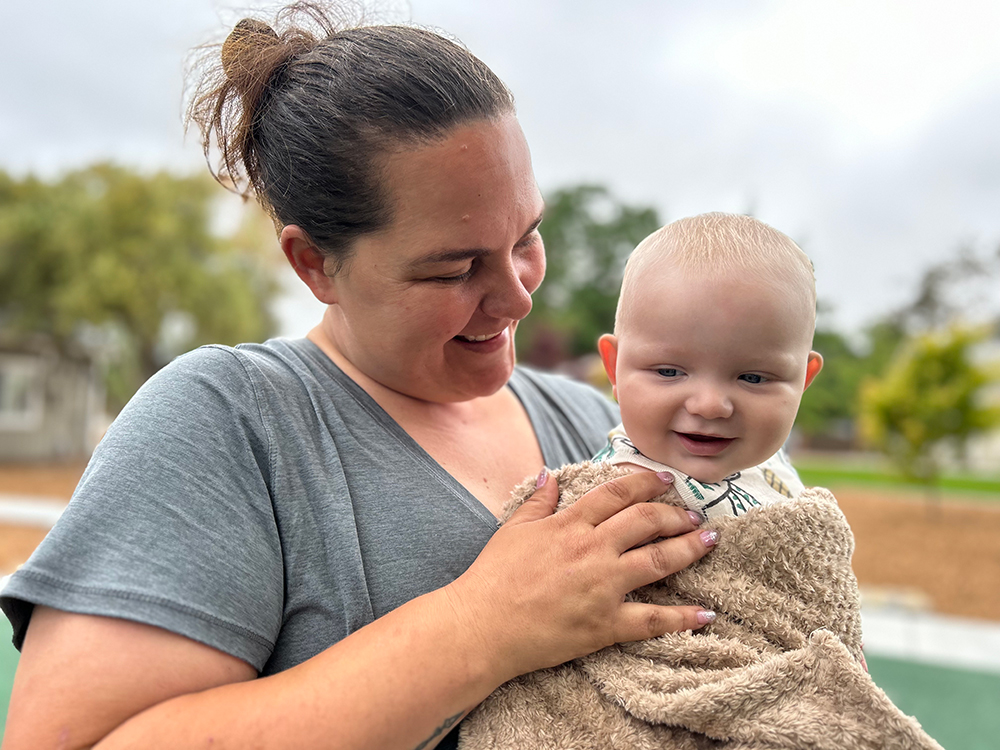
Athena House Saved My Life 100% | Tracy’s Story
In 2020, Tracy found herself at a crossroads in life. She had been running two businesses – a day spa and a horse ranch with as many as 18 horses. On top of her professional commitments, she was grappling with her mother’s brain cancer diagnosis and caring for her newborn son.
Tracy was trying to do everything for everyone except herself. The mounting responsibilities, her inability to say “no” or set boundaries, and her deep fear of inadequacy sent Tracy down a path of addiction to opioids and cocaine.
“I was doing everything – yet nothing – to keep myself going,” she said.
Tracy struggled to kick the drugs on her own, especially the opioids. Child Protective Services got involved. It was this pivotal moment that led Tracy to the Athena House addiction recovery program for women in Sonoma County.
Click here To read the rest of her story.
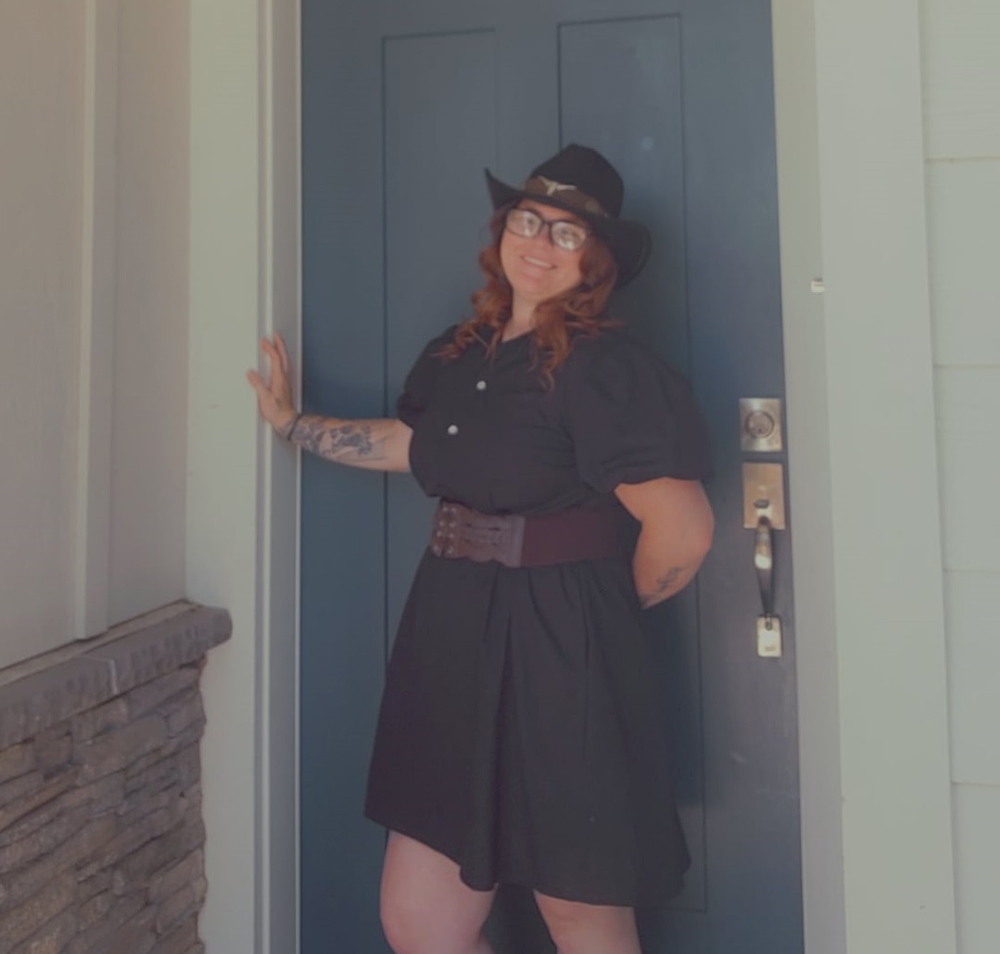
I would not be the woman I am today if not for Athena House |A.K.’s Story
I’m A.K. I’m an alcoholic.
I am a third-generation addict. I started using on my thirteenth birthday and since then, have lived only slivers of time when I’ve been clean and sober. I am also a daughter, sister and friend. My favorite title of all: mother.
Just before entering Athena House on September 13th, I hit the lowest point of my life. I wanted to die. Then, I asked for help and Athena gave me the opportunity I badly wanted.
Click here To read the rest of her story.

A crisis-call counselor shares his inspiration | Meet Jim
A serendipitous listen to a late-night podcast inspired Jim to become a crisis-call counselor three years ago. He had recently retired and knew he wanted to volunteer in his community, particularly with those facing mental health and addiction challenges, which had touched Jim’s life and his family.
As he listened, the woman on the podcast recounted her story of a time when she desperately needed help. She was a single mother, trying to take college courses and struggling with addiction. Overwhelmed and unable to handle it all, she dialed a helpline with thoughts of suicide. The person on the phone stayed up talking with her all night, and as the sun rose, she was no longer in crisis. The remarkable thing, says Jim, is that the woman thought she was calling a suicide crisis line but, in fact, had misdialed and had simply been talking to a kind soul who answered the phone and spoke with her throughout the night. Ten years later, she called the correct number to give others hope: “I’m happy, my son is fine, and I’m married to somebody who’s a good person. I have my degree from the University of Michigan.”
Click here to read the rest of his story.

The importance of a continuum of care | Meet Lisa
When Lisa’s son Ryan experienced a marijuana-induced psychotic episode in 2015 at 15, she scrambled to get him help. “His behavior was extreme, and he was angry and delusional, and we were just at a loss,” she said. He ended up being a “5150” – the Welfare and Institutions Code that allows someone who presents as a danger to himself or others to be involuntarily detained for a 72-hour psychiatric hospitalization evaluation.
The ordeal was traumatic for the entire family, most of all Ryan. “When he was released, we were throwing a bunch of intensive mental health programs at him and for us as a family. We were trying to figure it out, but nothing stuck.”
Click here to read the rest of her story.
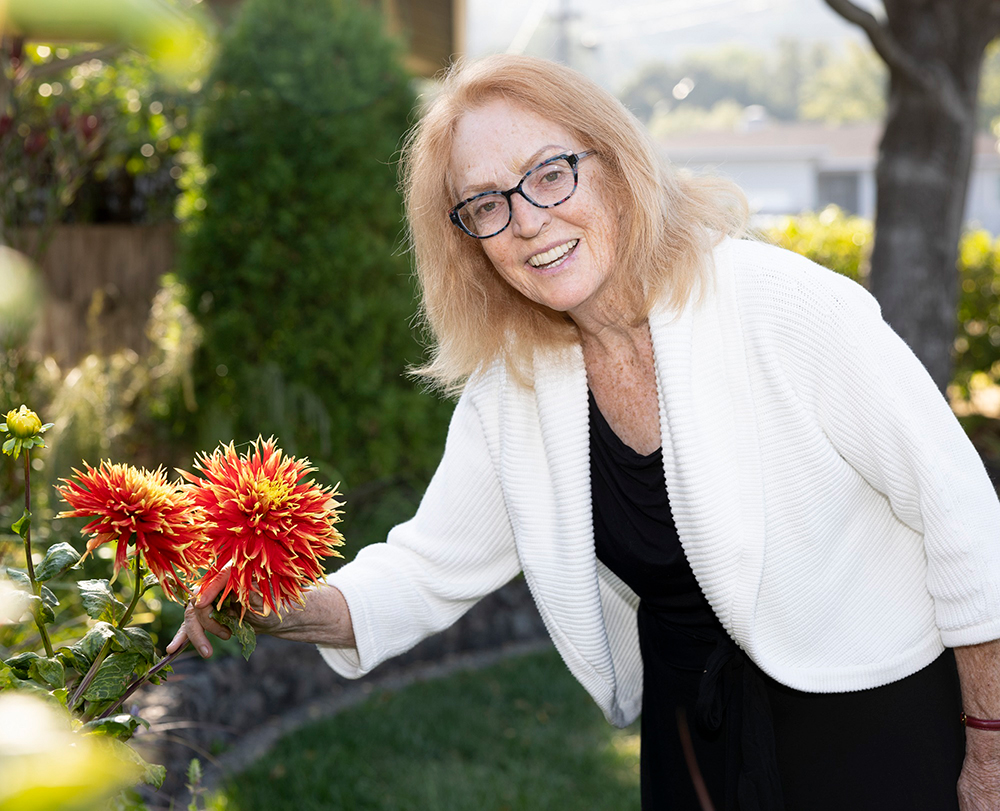
A stable home and the safety net of care | Meet Arlene
Ray’s difficult self-work is remarkable, says his mother, Arlene, considering challenging past experiences, including numerous hospitalizations. His easy and charming demeanor belie the obstacles he has overcome and faces each day. “I always remind him he has a gorgeous smile,” she says, noting that his health has been stable for over five years.
Ray cooks dinner for his two roommates in their Buckelew-leased apartment about two times a week. It’s a plant-based meal, usually vegetables, tofu, and rice, flavored with plenty of spices. He’s adhered to a plant-based diet for over six years, preparing his own meals daily.
Click here to read the rest of her story.
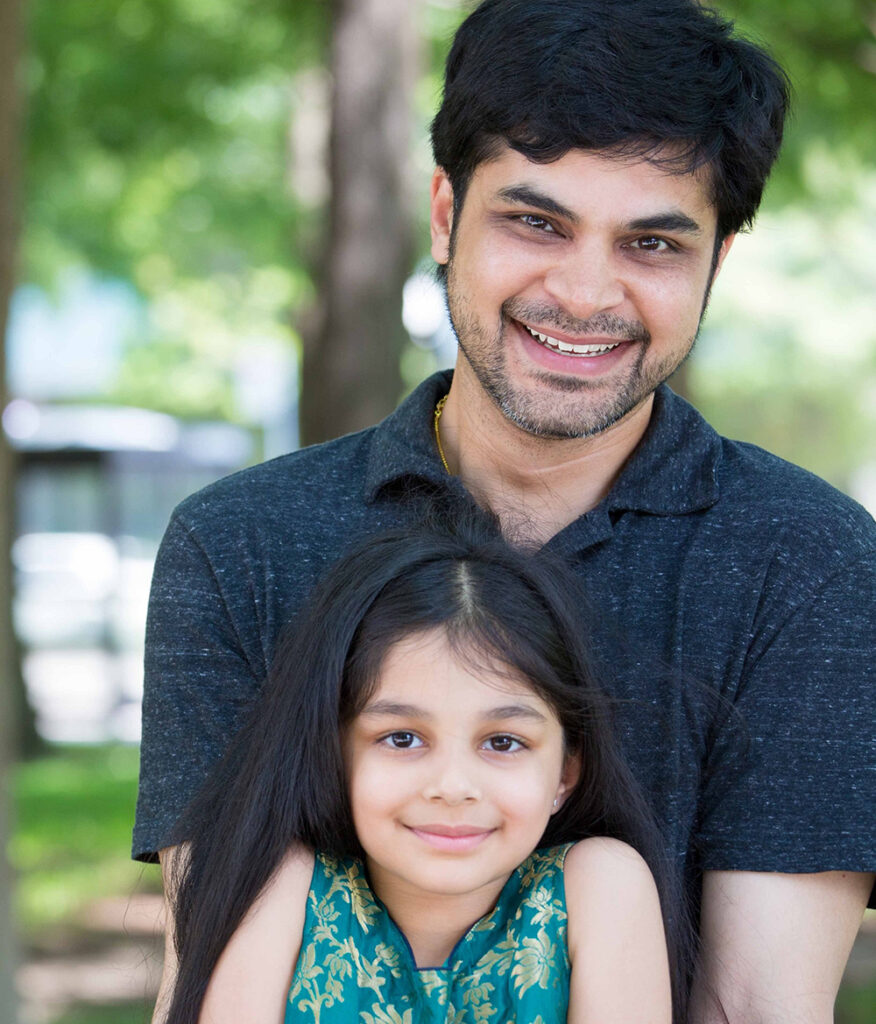
Counseling removes the barriers to healthy changes | Meet Cody
Cody’s anxiety had a ripple effect on his life. He was trying to extricate himself from a tumultuous relationship with a former partner, but his anxiety prevented him from engaging in the legal process to get 50/50 custody of his daughter and create a stable home environment. It also kept him from establishing healthy habits, such as exercising, eating well, and following a regular work schedule.
Through weekly Buckelew counseling sessions for two and a half years, Cody could discuss his anxiety and dig deep into his past relationships to understand how to navigate difficult situations. With the support of Dialectical Behavioral Therapy (DBT) mindfulness exercises and Cognitive Behavioral Therapy (CBT) interventions, Cody learned to recognize unhealthy thought patterns creating barriers to healthy changes in his life.
Click here to read the rest of his story.
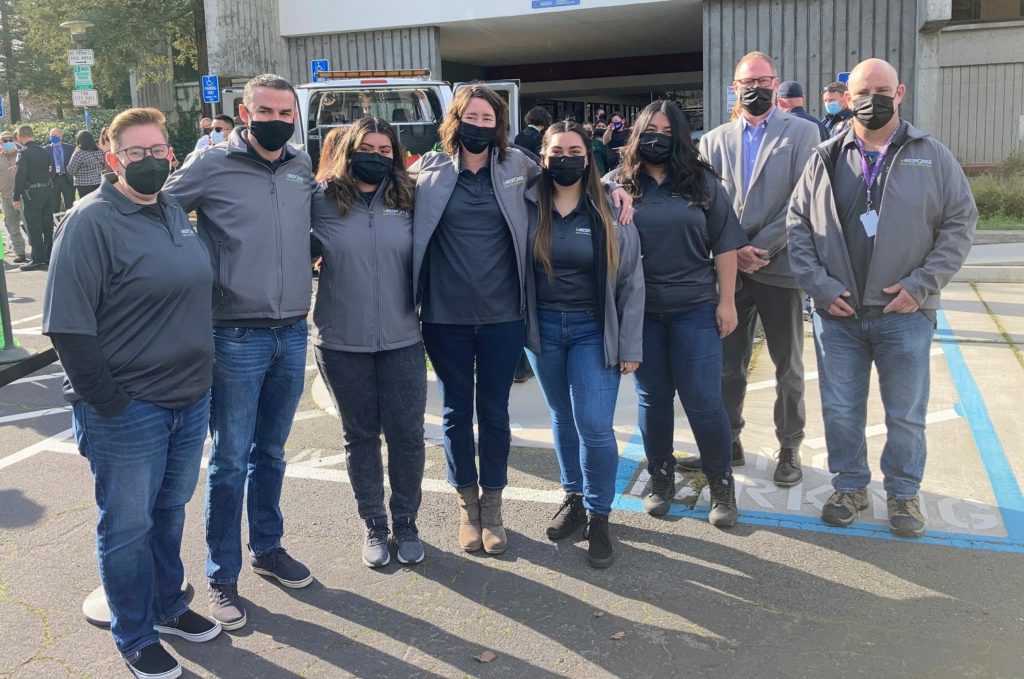
inRESPONSE
Buckelew Programs plays a key role in planning and leading the mobile inRESPONSE Mental Health Support Team launched by the Santa Rosa Police Department in January 2022. The inRESPONSE Team answers calls for mental health, substance use and housing crises that often come through 911 or community line calls. The team, which rides in a van bearing a logo distinct from law enforcement, includes a licensed clinician, firefighter paramedic and engagement specialist. With a mental-health-first approach, they bring resources to people in crisis while diverting cases from police, jails and hospitals.
Click here to read the inRESPONSE story.

With baby needing surgery, financial and mental health crises collide for new mom | Yuri
Within days of giving birth to her youngest son at Marin General Hospital, Yuri watched her newborn be whisked away to UCSF Benioff Children’s Hospital in Oakland.
Edwin, born three weeks early, wasn’t breathing right. His heartbeat was irregular. He needed surgery.
In the following weeks and months, Yuri struggled to recover from her C-section, care for her two other young children, and commute daily from San Rafael to the hospital across the bay where her son was fighting for his life.
Click here to read the rest of her story.

Despite extreme reluctance to try counseling, a client learns the social-emotional skills that would turn her life around | Sabrina
When Sabrina was in her early 40s, she felt herself sinking deeper and deeper.
Her mental health had felt precarious since her teens, when drugs, alcohol and strained personal relationships challenged her well-being. She grew estranged from her mother and sister following years of conflict. Then, in 2019, Sabrina’s father died after a long illness, and her brother died from suicide. Sabrina fell into an even darker place that left her feeling paralyzed.
She says she tried therapy many times before but felt it didn’t help much. “Just wasn’t my thing,” she says.
Click here to read the rest of her story.
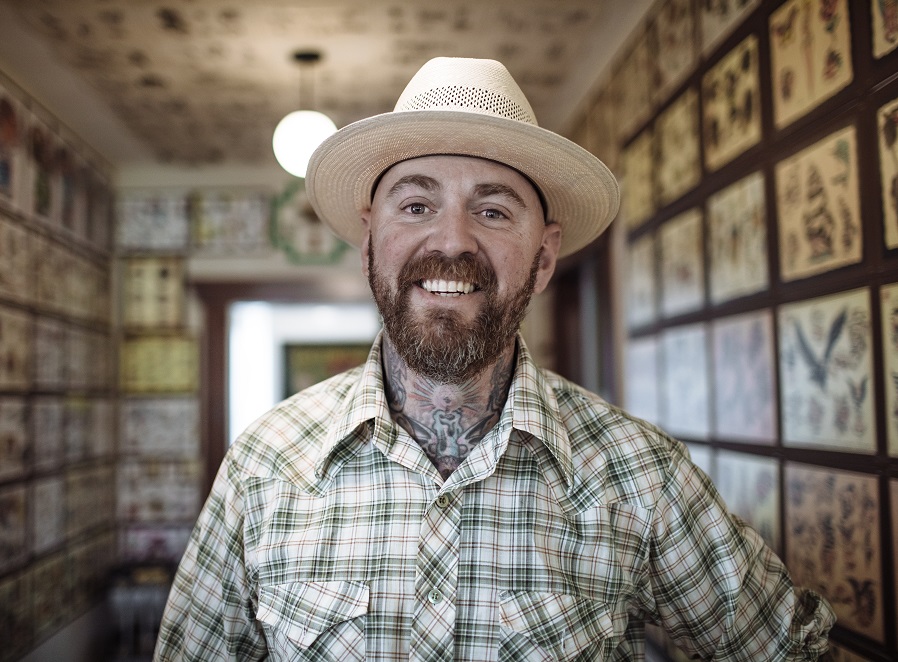
Petaluma Tattoo Artist Raises Funds and Awareness for Cause Close to His Heart: Suicide Prevention | Nick Rodin
Nick Rodin sits in his Petaluma Tattoo shop and pushes up his sleeve to expose the least ornate tattoo on his otherwise art-filled arm.
“God Speed,” it says. The words are black, the lettering simple.
“After my brother Andrew died, I had my father tattoo that as a memorial. He was a motorcycle racer,” Nick explains.
Click here to read the rest of his story.
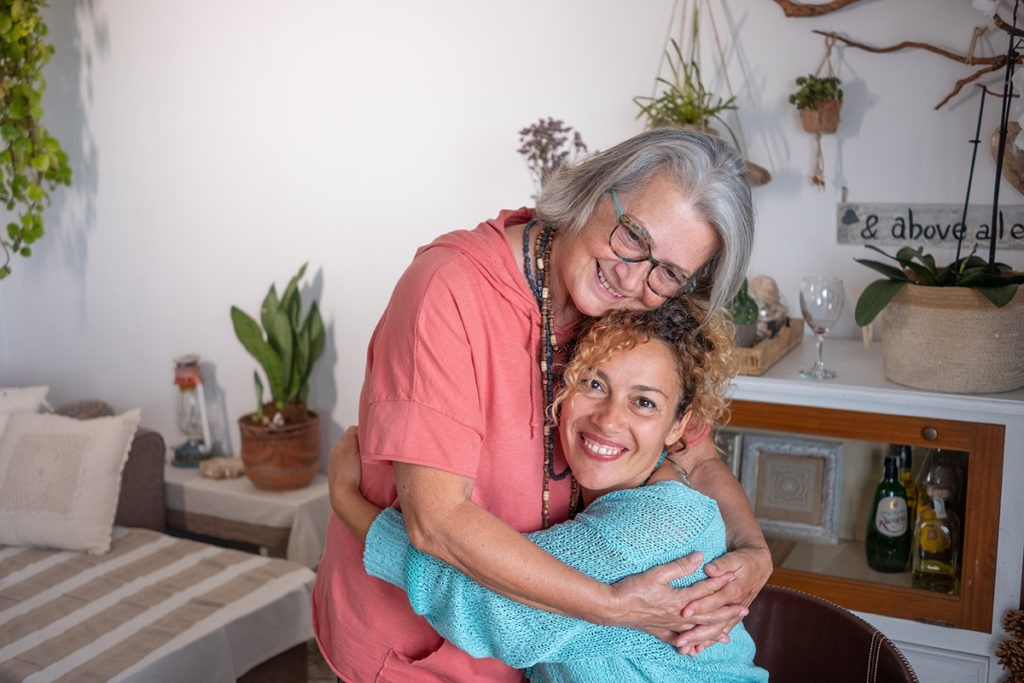
Mom finds relief and hope for troubled daughter in Buckelew’s Supported Housing programs | Amy, client’s parent
Amy is her daughter’s champion.
It’s always been that way. From grade school and long into adulthood, Amy always tried to be there for Joanna. Although, Amy never imagined she’d need to be such a resourceful and fierce advocate for so many decades.
This is the story of how Amy finally found relief and support for her daughter – and for herself.
Click here to read the rest of her story.
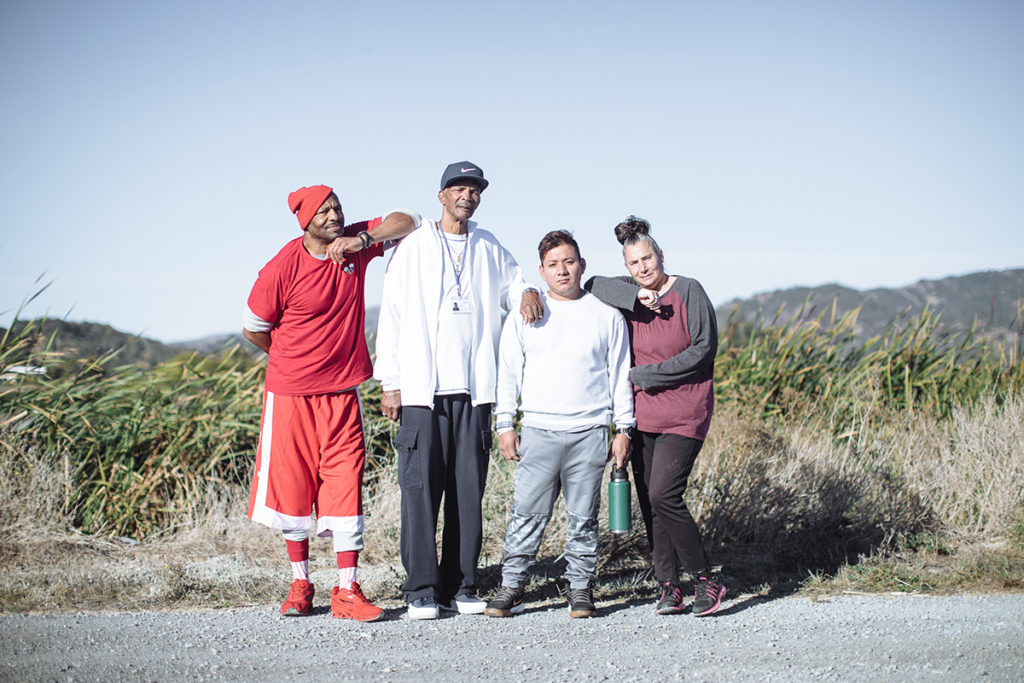
How court-ordered rehab launched a 50-year career as a substance use counselor | Eugene Hay
Eugene Hay remembers running from the police as fast as he could.
He was 18 and brought up on the streets of Oakland, where he dabbled in drug use, sales, and theft. This wasn’t his first encounter with the police, and it wouldn’t be his last.
On this day in 1970, Eugene couldn’t outrun the cops or their bullet that pierced the base of his skull and traveled clean through his right cheek. It shattered the jaw bone but miraculously didn’t cause critical brain damage. Eugene’s jaw was still wired shut when the courts sent him to prison for a year.
Click here to read the rest of his story.
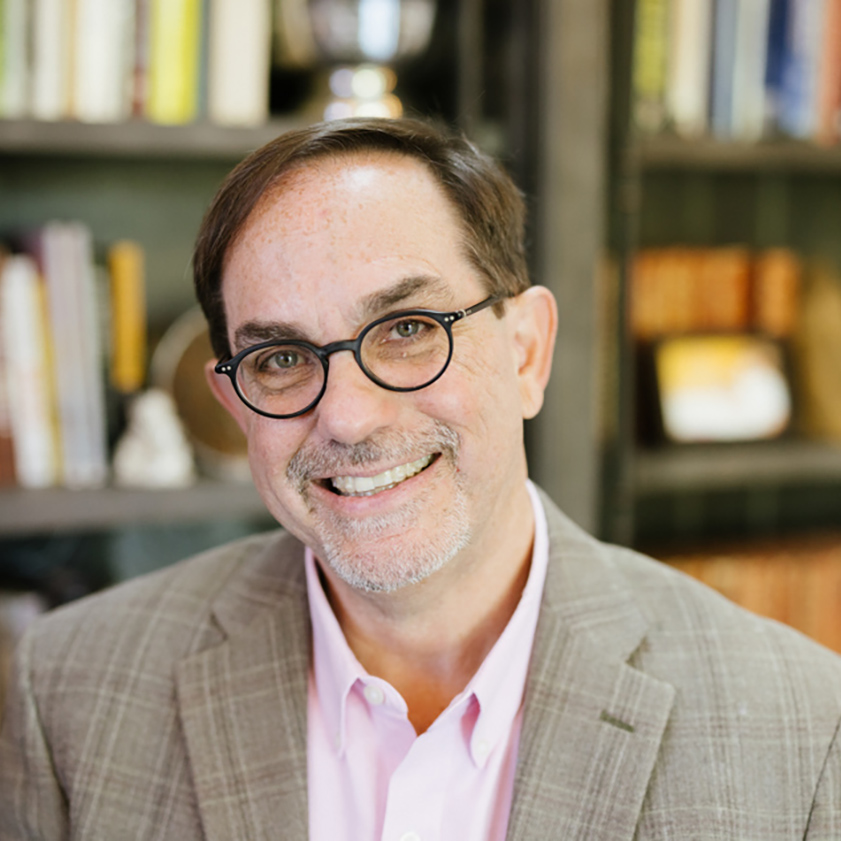
Buckelew Board Member Breaks the Silence for Suicide Attempt Survivors & Recovering Addicts | JD
Two roads brought JD Schramm to Buckelew Programs in early 2022.
The first road – the one JD calls “the less interesting” path – was his longtime friendship with Buckelew board member Scott Maclise, who urged JD to join the board because he knew their missions aligned. In the early 1990s JD worked for Scott for just a few months as an administrative assistant, but the two formed a lifelong friendship.
The second path was much longer and rockier.
Click here to read the rest of his story.
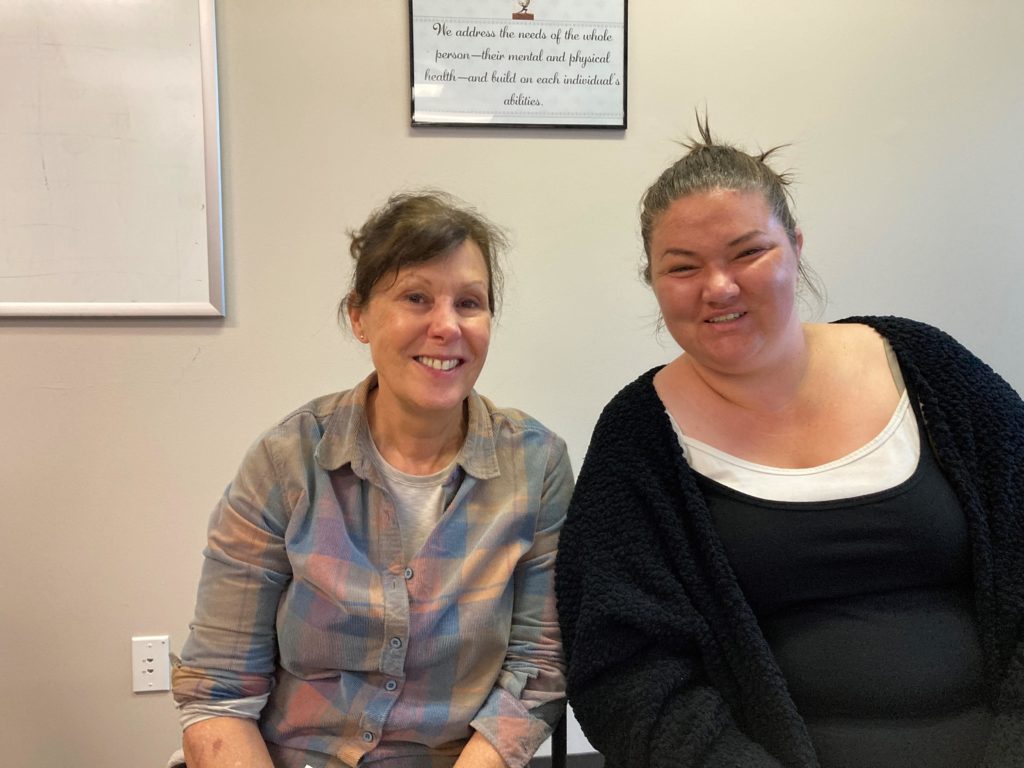
Sonoma County Independent Living Program | Danielle’s Success Story
Danielle was in her late 20’s with two young children when she experienced her first on-set of psychosis. She was hearing voices that would not stop, including occasional command voices, telling her to do things she did not want to do. Being out in public resulted in feelings of paranoia and intrusive thoughts relating to trauma she had experienced would result in daily flashbacks. Eventually, two months after her on-set of psychosis, the resulting functional impairments caused Danielle to lose her job. She was subsequently hospitalized twice with severe depression and feelings of extreme overwhelm associated with her symptoms.
Patty, case manager with Buckelew Programs’ Independent Living Program in Sonoma County, first met Danielle in June of 2019. “She was pretty shut down, with a flat presentation and minimal verbiage,” says Patty. “And because the voices she was hearing made her afraid to wash her hair, for the first two years of our meetings, Danielle would come to appointments wearing a beanie which she wouldn’t take off.”
Click here to read the rest of her story.
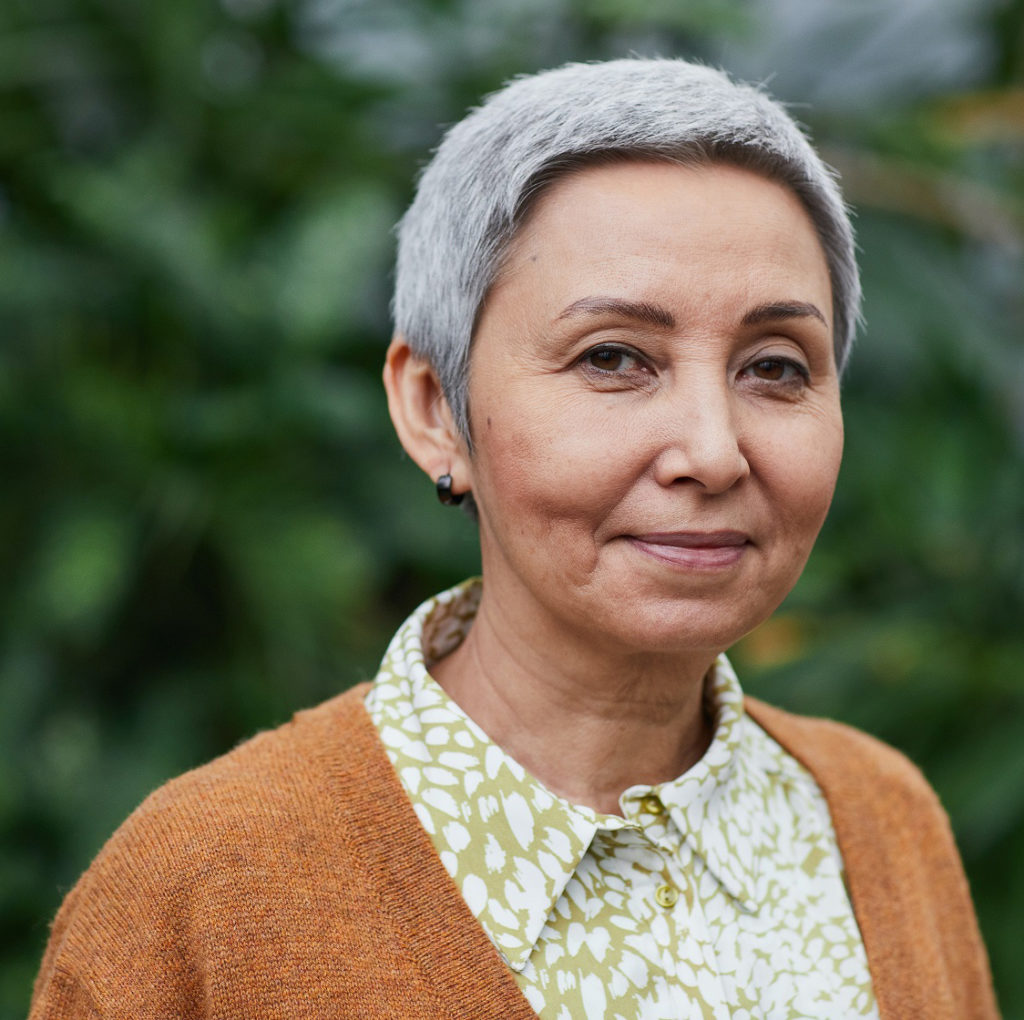
Supported Housing Program Client | Sandra
Before Sandra connected with Buckelew Programs, she had experienced many years of mental health challenges that she had just learned to live with. “I never had the insight that help might be available,” she says. “I just thought it was ‘normal’ for me.” Her severe depression eventually resulted in estrangement from her family, losing her job and finally, losing her home.
“At the time I was homeless, I didn’t have much hope,” she says. “I thought it was going to be that way forever. I just didn’t care if I lived or died.” Living without stable housing can often exacerbate mental illness, and untreated individuals often experience crisis situations while living on the streets. Sandra was ultimately referred to Buckelew Programs through the county, and it was then that she became hopeful for her future.
Click here to read the rest of her story.
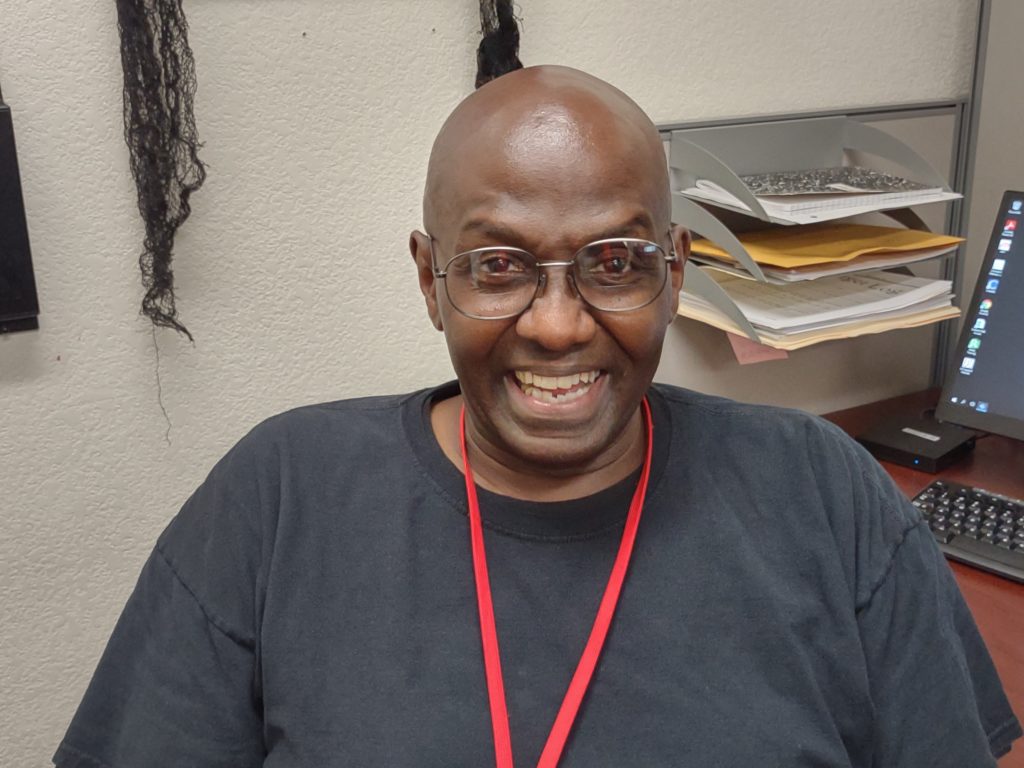
Helen Vine Recovery Center Alum Giving back keeps me sober. | Anthony
A long-time Marin resident and caterer by trade, Anthony, like many Helen Vine Recovery Center (HVRC) alum, returns on a regular basis, often several times per week. There is a core group of about 15 former clients who come in on Wednesdays and Sundays to lead groups on various topics related to recovery. Others drop in to help facilitate and meet with the current clients.
“When I was a resident, it meant a great deal to me to hear from someone who had sat in my same chair. They showed me that I have the same opportunity as they did to succeed; that is was possible to improve the quality of my life.”
For many, an on-going connection with HVRC, staying close to the program, is a vital component of the recovery process. “Having the opportunity to be of service, to be supportive and to lend an ear to current clients is huge for me,” Anthony said. “Giving back keeps me sober.”
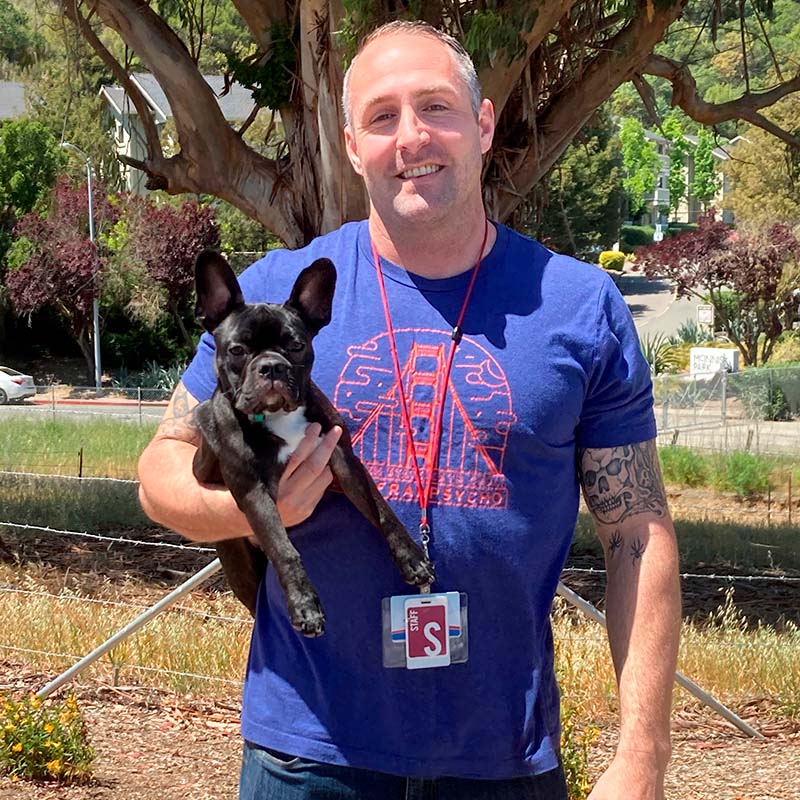
An early experience with addiction results in a lifelong passion and determination to practice law | Greg Bentley
Like many adolescents in high school, Greg B. discovered a fondness for alcohol. But what was different for Greg was the fact that he could not not drink to excess. Every opportunity; every time.
By the age of 21, Greg had racked up three DUIs and ten or so misdemeanors, all alcohol-related. In and out of the courtroom, a young defendant with no understanding of the law, Greg developed a keen interest in the court system. Amidst a background of serious mistakes and devastating consequences, a desire was born that would be his North Star for many challenging years to come.
After a brief stint in jail and then court-ordered rehab, Greg was resolute when getting out.
“I became self-conscious about being judged by others,” he said. “Even so, I didn’t take rehab seriously. I just knew I wanted to get my act together and wasn’t going to drink anymore.”
Surviving on sheer willpower without understanding recovery is what’s known as ‘untreated alcoholism’ – a formula not built to last. And even though the two years he stayed sober were productive, he eventually relapsed.
“All the things that are keeping me sober now, I had no concept of at that time,” he says. “Accepting that I have a disease, having sober fellowship; being a service to society. Knowing I can never do drugs or alcohol in a way that is NOT addictive. Knowing I can’t stay sober on my own.”
While finishing up his BA in Political Science at SFSU, Greg relapsed. For the next ten years, throughout law school and launching his career, Greg made his life function while still using. Short bouts of productivity were followed by binge drinking.
“I was a tornado of destruction during that time,” he says. “Always trying to repair relationship collateral damage only to repeat it over and over again.”
Still, his growing passion for practicing law grew stronger and drove him forward. He joined the traveling mock trial team in law school and did well. “I discovered I was decent at presenting arguments and cross examinations,” he says. “And I really, really, loved it. My drive for wanting to be a lawyer superseded my addiction for quite some time. Criminal defense became the passion of my life.”
An internship with the San Francisco Public Defenders Office led to an offer for a post-graduate job with the local law firm owned by his idol, criminal defense attorney Tony Serra. “A dream come true,” Greg says.
Greg’s star continued to skyrocket, and all the good he worked so hard for continued to pour in. As a newly-minted attorney, he served as Serra’s co-counsel on major cases throughout the state of CA – a privilege normally not extended to brand new lawyers. Serra quickly gained confidence in Greg and began to funnel him important cases.
“He believed in me, and knew I could handle the larger cases,” Greg said. “But as a new attorney, I doubted myself. I never said no. I wouldn’t admit I felt inexperienced – so I took it all on.”
At one point, Greg had 50 clients across the state and was enjoying the amenities of a successful career. “I was living large,” he said. “Thought I was a big shot – had it made.”
As courtroom appearances became more frequent, Greg knew he couldn’t afford to present under the influence of alcohol; but as his stress mounted, he looked for alternatives to cope. He found a dealer who could provide a variety of ‘benzos’ – sedatives that would lessen his anxiety and go undetected.
Greg quickly developed a stellar reputation and was well-respected within his professional circles. As pressure built to sustain that level of achievement, even the benzos weren’t enough to silence the noise in his head. In a moment of desperation, he tried heroin. And as all the voices went silent, Greg inherently knew he had just passed the point of no return. Instantly it became a daily necessity.
Soon, Greg was the lead on a notorious murder trial in Modesto that dragged on for months, much longer than anticipated. When not in the courtroom, Greg found a new crowd of folks who were active in the local drug world and met a girl. Finally, the case wrapped; and meanwhile, many more cases back at the office had been piling up, needing his attention. As Greg was driving out of town, headed home, his girlfriend called, pleading him to stay.
“At that moment, as I was turning the car around,” he said, “I knew I was making a pivotal decision that would change everything. I literally never really came back after that.” Quickly, everything began falling apart.
Friends, family and colleagues began looking for him. As his life unraveled, Greg hid out in hotel rooms as he did drugs, constantly trying to bury his awareness that everything he worked so hard for was slipping away. The money ran out just as he received notice that his license to practice law had been suspended due to his failure to respond to several complaints from the CA State Bar. Shortly thereafter, he was disbarred from the practice of law.
An expensive daily habit with zero money left meant finding new means of income. Greg learned how to operate in this arena and was taught the ropes on retail theft and stealing cars. Nine months later, Greg re-entered the court system thirty pounds lighter as a criminal with an auto theft charge. His former colleagues were sure it was a mistake. Until he came back again.
“The heroin addiction is such a horrible, powerful thing,” he said. “The only thing that matters is not feeling horrible, which is a constant need. Jails, institutions or death, that is where the heroin lifestyle takes people.”
Four months in the county jail followed. When Greg was released with an ankle monitor, he was still using – but knew if he cut it off, he was headed to prison. When he did eventually cut it off, he was on the run for months until getting caught, and then spent the next nine months in state prison. When released to his dad’s house, his probation officer learned he was still on drugs.
“I was given a choice,” he said. “Back to jail, or Helen Vine Recovery Center for detox.” Having lost everything, Greg knew this phase of his life was over and he was ready to embrace recovery. He was admitted to the Center in February of 2018 and completed a ninety-day program.
“I walked into Helen Vine a convicted felon and a heroin junkie,” Greg says. “Never once was I made to feel like a criminal or drug addict – just a person who needed help. The counselors took a genuine interest in developing a customized program for me, versus applying the same ‘one size fits all’ general treatment plan that I’ve experienced elsewhere.”
Today, Greg has been sober for over three years and is working for several Bay Area attorneys as a legal researcher, writer and consultant. However, he has much larger plans and is working on literally building his case for an ultimate attempt to reinstatement his license to practice law.
There is an established challenging process for reinstatement; the majority of applicants are not successful. Greg will need to re-take the CA Bar Exam, as well as represent himself in court versus the State Bar of CA. The ultimate decision, whether or not to grant licensure, lies with the CA Supreme Court.
“I’ll need to prove serious rehabilitation because I went so far off the deep end,” he says. “I’m eligible sooner, but I want to show five years sober to give myself the best chance and be fully ready. Ultimately though, I want to be in a place where my happiness is not contingent on whether or not I practice law again.”
Greg continues to take steps towards rebuilding his legal career. In addition to having recently completed the three-year Lawyer’s Assistance Program, Greg volunteers with The Other Bar (a recovery program for lawyers, judges and law students) and speaking at homeless shelters, law schools and in-patient rehab centers. He was recently recognized by Marin County Probation and earned a place on their ‘Wall of Change,’ which celebrates probationers who have successfully turned their lives around.
“If the Helen Vine Recovery Center did not exist, honestly, I don’t know if I would be sober,” Greg says. “I would not have been able to detox on my own, which the other treatment center required for admission. Ultimately, with the lifestyle I was living, there is a very high likelihood that I would be back in state prison or dead. There is no other program like it in Marin County.”
“I miss everything about being an attorney and being in a courtroom,” Greg says. “It’s the most fun I’ve ever had. But I will never lose my focus on continuing to do the activities that got me sober, cause that’s what keeps me sober.”
The Helen Vine Recovery Center has been the first step in recovery made by thousands of Marin residents. Marin County’s only residential detox facility welcoming those with limited financial resources and a co-occurring disorder of mental illness and substance use, the Helen Vine Recovery Center was named in memory of a young woman who died because she was unable to find treatment for both of her conditions at the same time. Today, in partnership with Marin County Behavioral Health and Recovery Services, the Helen Vine Center offers a safe place for people like Helen to pursue recovery from both mental illness and substance use. This past fiscal year, the Center counted over 900 admissions.
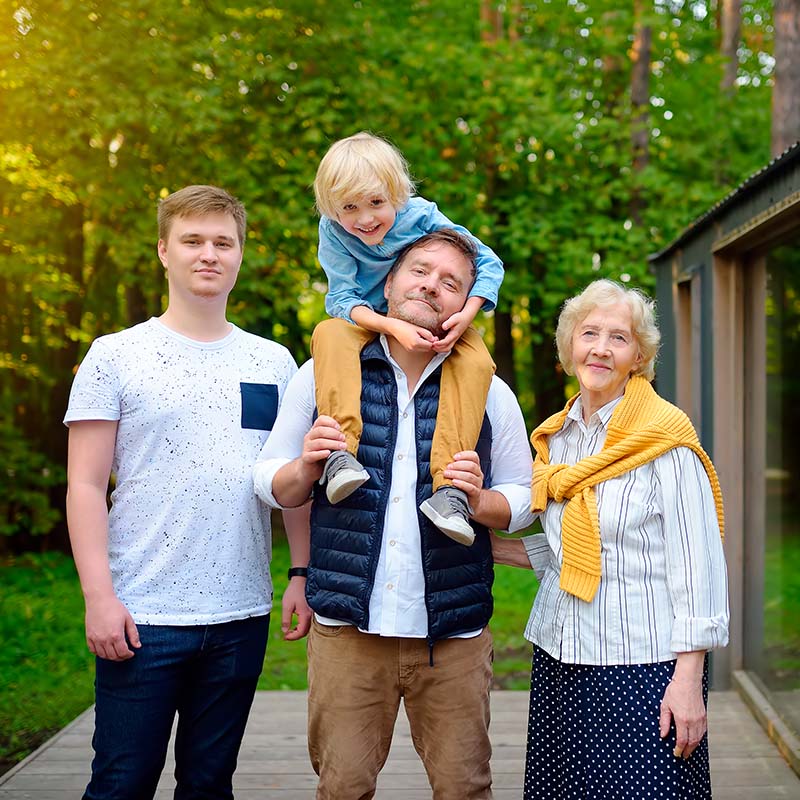
Buckelew was our lifeline | Scott (FSC Program)
Scott was in his mid-twenties and doing what a lot of young men at that age do. Playing his guitar, going to the gym, driving around town and enjoying spending time with his girlfriend. No one knows exactly what happened, but a public argument at a restaurant with the girl he was seeing was the triggering event that de-railed his life.
The event would soon have a ripple effect – impacting his entire family and ultimately leading to Scott’s ‘first break’ – an episode of psychosis that resulted in hospitalization.
Immediately after the restaurant incident, Scott dramatically changed. He stopped playing his music. He was argumentative. He stopped driving and isolated from his community. He slept all day. Sandy, Scott’s mom, was terrified for him. As a medical professional, she knew it was a mental health issue, but didn’t know where to turn for help.
As his behavior escalated, Sandy found herself having to leave the house multiple times, because she didn’t feel safe. Hesitant to involve law enforcement, Sandy knew situations involving police and those experiencing behavior related to psychosis didn’t always turn out well. Feeling desperate, she found NAMI through Google. NAMI referred her to Buckelew’s Family Service Coordination (FSC) team, connecting her with Katie Swan, Buckelew Programs’ Team Leader FSC.
“Katie was our lifeline,” Sandy says. “We began talking regularly. They educated me on what was happening and how to best navigate and address the situation.”
Buckelew Programs’ FSC Team strives to provide education, connection to local resources and support to family members and caregivers of adults and youth experiencing a wide range of mental health challenges.
Several months after connecting with Buckelew, Scott’s mental health decline resulted in an episode at the house that involved a broken window. Pushed to the breaking point, Scott’s brother told his mom, ‘if you don’t call the police, I will.”
The phone calls with Katie had prepared her well. Having been coached on how to effectively engage law enforcement, the encounter with police that day resulted in a heart-wrenching but helpful plan to assist Scott to access crisis mental health services at the hospital.
“I don’t know how I would have survived that phase of his illness without Katie’s help,’ said Sandy. “
“It’s so hard to watch your loved one struggle,” said Katie. “You can’t access services for them. We worked with the family to best prepare them for Scott’s return home.” Katie helped both Scott and the family navigate the “messy” process of assessments and encounters with doctors. “His paranoia made him struggle to trust anyone. We supported him throughout that time, encouraged him to ask questions and engage with staff to access the services that were fitting for him.”
Once home from the Crisis Residential Unit, Scott signed an agreement with his family that he would take his medication regularly and keep his doctor appointments. Katie connected Scott to case manager, John, who would interact with Scott regularly. John also enjoys many of the activities that Scott used to engage in. The relationship turned out to be transformative, resulting in Scott’s renewed interest in getting his life back. For the first time, he had insight into his illness and was open to leaving the house. He stopped sleeping all day and looked forward to his time with John.
“Prior to his connection with John,” Katie said, “Scott’s anxiety and internal stimulus was so extreme he would completely sweat through his clothes before meeting me in my office. At home, he would hide under a blanket for hours and struggle with his paranoia. Developing a relationship with him took time.”
John’s impact on Scott’s life through his advice and support is on-going. Goals include gaining confidence in managing his anxiety and continuing to build social skills and independence. He’s playing guitar again. He’s looking forward to going back to local parks with John, a practice they had started prior to COVID-19.
Sandy is encouraged by Scott’s progress and is hopeful for his future. “I want to see him integrate back into society and enjoy life,” Sandy says. “To drive again. Exercise. Have a girlfriend.”
“Early intervention is so important,” Katie says. “The sooner we can provide support and education, the sooner that person and their family can start the journey to recovery. And recovery is unique and defined by the individual. They get to choose what their recovery looks like and what works for them. Scott has done a phenomenal job at that.”
“I can’t describe how grateful I am for Katie, John and Buckelew,” says Sandy. “Without their help, I cannot image where we would be. They have given us hope.”
“If people have support in their life,” says Katie, “they can get through pretty much anything.”
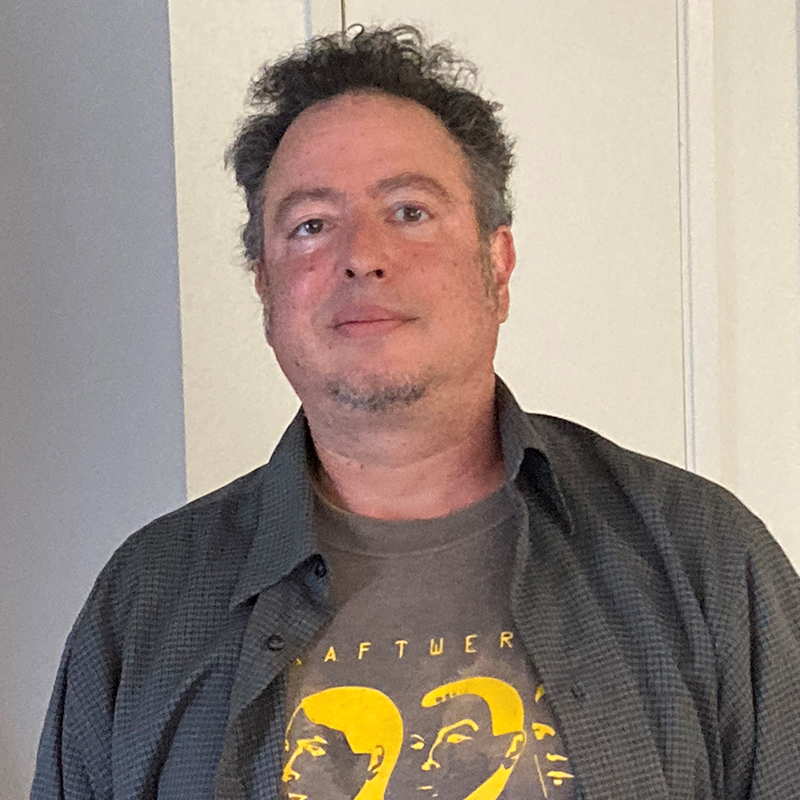
My thoughts were, “it’s time for an adventure” | David
“Where I was, was bad. This program was the answer.”
David grew up with a close-knit family in San Francisco in the 80’s. “As kids,” he says, “we took the bus everywhere – cost just a nickel.”
In 1983, his father bought him the new Apple IIe. “We were the first house on the block to buy a PC,” he says. “The computer era was just launching; I consumed everything tech at that time.”
David excelled in school and was accepted into competitive gifted academic programs. He participated in choir and the debate team, and finished high school early to attend a year-long program in Israel, to which he had won a full scholarship.
“I had close friends,” he says. “I was social; much more so than I am now.”
Many years later, living with a bi-polar diagnosis, David clearly remembers the time in his life when his mental illness first presented itself. “My rational decision-making abilities were gone,” he says. “My thoughts were, ’it’s time for an adventure.’” He left school. Six months later, when the episode was ending, he would go back to school. “It took me seven years to get my BA,” he says.
And the cycle continued – for nearly two decades. “It never occurred to me I was ill,” he says. “Even though I was experiencing evictions, homelessness and not sleeping, I was euphoric. I thought my time spent on Skid Row was ‘free paradise.’ I would become a completely different person, one who is unimaginable to me now.”
After his third hospitalization, David ‘had a moment of clarity,’ and took his sister’s advice to seek help. “My sister, a psychiatrist, told me there was a good program in Marin called Buckelew. That was six years ago.”
David was accepted into Buckelew’s Marin Assisted Independent Living (MAIL) program, where he has maintained stability and mental health. MAIL program clients share living space in housing where BP provides comprehensive oversight of care. BP service providers visit the homes three times a day and work with the clients to ensure meds are taken, chores are completed, appointments are kept and meals are planned for and prepared.
Emily McDonald is a Buckelew Program’s case worker. She meets with the housemates once a week to help plan meals and make a grocery shopping list.
“This program provides real homes for our clients,” said Emily. “This is their home, their family. Many clients have never experienced a warm, stable and supportive environment, like we provide. They are accepted and cared for here. It’s love and hope that we provide.”
“Buckelew was a lifesaver for me,” David says. “Prior to getting here, I didn’t have a regular doctor, much less a psychiatrist and therapy. They helped me establish routine and structure, to where I am OK, safe and stable. If this program didn’t exist, it would have been disastrous for me.”
Today, David still enjoys close relationships with his family members and is feeling confident about establishing new goals.
“I’m a grateful person,” he says. “I take nothing for granted – food, shelter, health. Just because of what I lived through. For me, just to be OK is a big deal.”
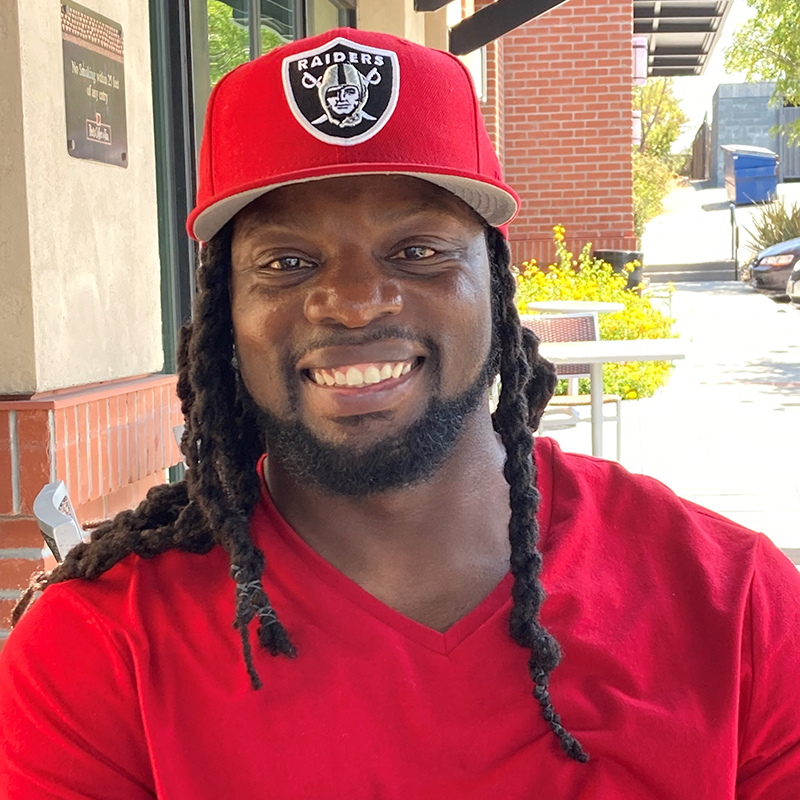
You have to be active in your child’s life and your community | Demar
“This is for other people,” Demar told his recovery coach several days after arriving at the Helen Vine Recovery Center. “Not for me.” His coach asked him to give it his best shot for the next 30 days. Nearly four months later, Demar was completely transformed. “Helen Vine had become my cornerstone; my family. I didn’t want to leave, but I knew I was ready.”
Originally from Oakland, Demar moved to Marin as a teenager when he had been getting in a lot of trouble, and his godparents offered a different environment. Shortly after graduating, Demar focused on working to support his baby girl, and a dead-end cycle began. “I would work multiple jobs, pay my bills, and party with the rest. Work, drink, use, pay bills – and repeat. Over and over.”
He became frustrated and felt like there was never enough money. The crowd he was hanging out with became more centered on drug use and supporting their habits with theft. Demar began finding himself in and out of jail. “Another dead-end cycle,” he says.
Throughout this period, Demar always remained close with his daughter. At one point, he was talking to her from jail and she confessed she was embarrassed because classmates knew her daddy was incarcerated. “That was rough,” he said. “I looked around and knew I didn’t want to be one of the older guys in jail saying to the younger men, ‘don’t end up like me.’”
“Before my father passed away, he sat me down,” Demar said. “He said to me, ‘as a man, there are certain responsibilities you have. You have to be active in your child’s life and your community. You’re wasting time.’”
The county offered recovery at Helen Vine. Once he was ‘all-in,’ he attended every meeting and volunteered for every available job. “I opened my mind to try something different, to try a path that wasn’t a guaranteed dead-end. There is a saying in AA – ‘Try something new; if you don’t like it, we’ll refund your misery for free.’”
Demar left for a sober living environment (SLE), but rode his bicycle daily to Helen Vine to attend morning recovery meetings. Soon, he was offered the position of assistant house manager with another SLE. More responsibility came with a promotion to house manager. At his second job, he went from cook to store manager. He took on the role of secretary for the large Helen Vine alumni group.
Today, Demar is working towards a career in the recovery field and is a registered drug and alcohol technician. He is passionate about building into local youth and volunteers regularly with several non-profits. He would like to one day open a Boys & Girls Club in Marin.
“My roots, my recovery foundation, my grounding – all happened at Helen Vine,” Demar says. “My closest friends were made here. This is the only recovery program that could have worked for me.”
Since opening in 1999, HVRC has helped more than 22,000 individuals overcome addiction, heal emotional trauma and develop the tools they need to transform their lives. Clients at HVRC become part of a large, supportive community of staff, peers and alumni who are dedicated to making their time in treatment, as well as outside of treatment, successful.
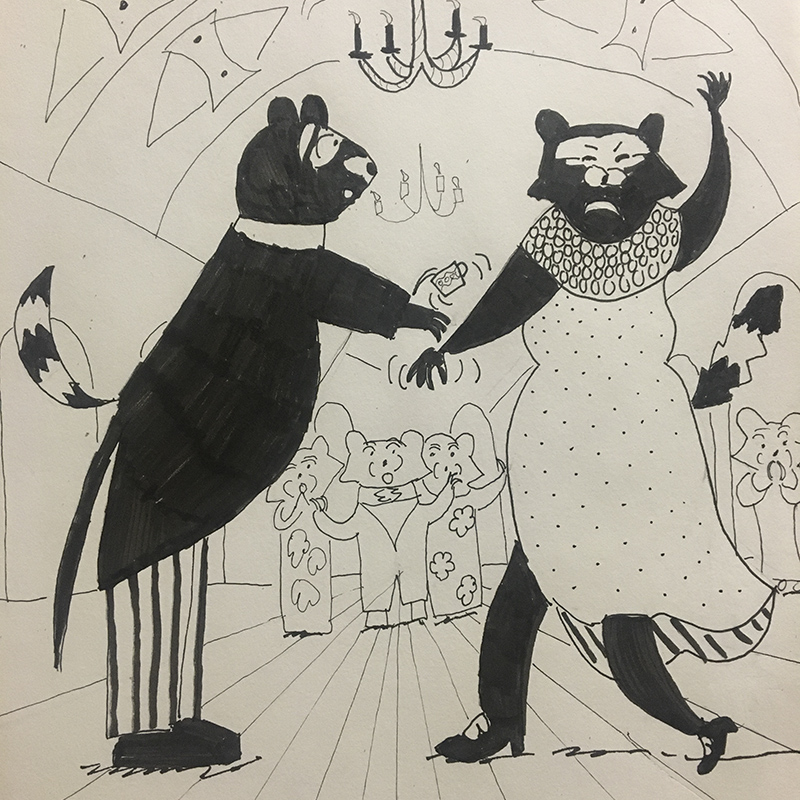
I always need to be creative otherwise my mental health suffers | Jessica
Sophia, a Sonoma resident, experienced her first psychotic break at the young age of 12 and was hospitalized at age 16. While she and her family grappled to understand what was happening and what to do, Sophia’s mental illness continued to ‘color every thought she had,’ and she ended up homeless for several years.
Her eventual diagnosis confirmed she was suffering from multiple forms of mental illness and Sophia entered treatment as a young woman. When she first connected with Buckelew Programs (BP), she was living in county-provided housing with roommates who were also experiencing mental health challenges as well as addiction.
“A BP case manager was working with me to apply for independent housing,” she says. “My current living situation was becoming really scary and unmanageable. They worked quickly and helped to successfully move me into a place of my own.”
Seven years later, Sophia is a client with BP’s Sonoma County Independent Living (SCIL) Program and receives case management, which helps her remain stable and independent. “My case manager, Jessie, helps me with practical day-to-day items and planning,” she says. “She’s also emotionally supportive and dependable. I spend a lot of time alone, so I’m always happy to see her.”
“Sophia is very skillful with regards to utilizing healthy coping techniques to manage her symptoms,” says Jessie. “She has a strong support system, which consists of community support meetings, a nutritionist and a case manager. She is very active in her mental and physical health recovery.”
Along with cooking and her emotional-support pet cat, Sophia enjoys drawing, almost daily.
“Drawing is very therapeutic for me,” she says. “It gives me something to accomplish as well as something to share. I always need to be creative otherwise my mental health suffers. There is a long history of people with mental illness bringing astounding pieces to the art world. I can be a small part of that world with my drawings.”
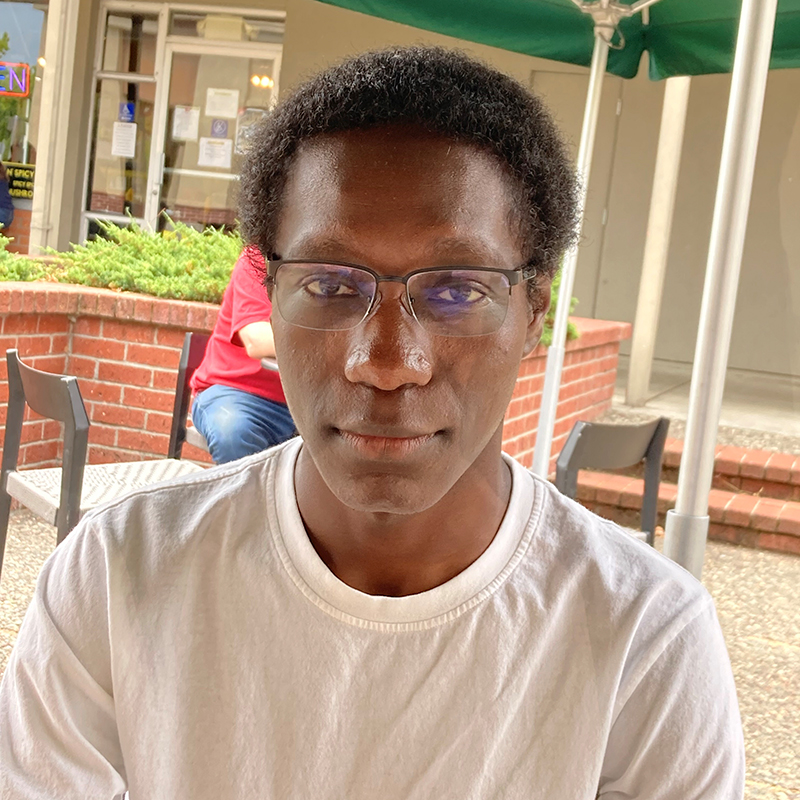
Buckelew made my independence possible | Josh
When Josh first connected with Buckelew Program’s Transitional Adult Youth (TAY) program at age 18, he was living with his mother but needed and wanted support to work towards independence and creating a future of his own. Reading at a college level since the first grade, Josh grew up enjoying all types of books and developed a talent for writing. His love of the written word was “always a constant” in his life, and helped sustain him during turbulent times.
Early adolescence was a tough road. For a number of years, Josh was placed in group homes that ‘felt like prison.’ His mother took him to see a variety of doctors and psychiatrists who diagnosed him with a number of different mental illnesses. “I was put on meds for years to treat bipolar, Tourette’s, anxiety, etc.,” Josh says.
Just recently, at the age of 21, Josh was re-evaluated and the determination was made that he didn’t have multiple mental illnesses but only one, which was PTSD. “I am aware of my triggers and how to manage my symptoms,” he says. “Today, I am off all medication.”
BP caseworkers connected Josh to counseling and helped him navigate resources in support of his desire to live independently as well as pursue a History degree at the local junior college. A big achievement in support of those goals included learning how to take public transportation, which was an important step towards enrolling in school.
Josh continued to excel, and through BP’s partnership with Social Advocates for Youth (SAY), he made a successful move to living independently at Tamayo Village. Soon after relocating, Josh successfully secured a part-time job, where he has maintained steady employment for the past year.
Josh was accepted at Santa Rosa Junior College, and began classes as a freshman, living independently and successfully navigating transportation to get to and from school. And even though he didn’t feel “good at it,” Josh was enjoying being in community with his peers and interacting with classmates. When the pandemic hit, the transition was abrupt and stressful.
“All of the sudden,” he says, “I was alone again, all the time. It was difficult.” His GPA dropped as a result, but through regular support from his BP caseworkers, his GPA rebounded, and Josh was encouraged to pursue a four-year degree. In early August of 2021, Josh is headed to Columbia, SC, where he will major in African American studies at Allen University.
“Josh has been extremely successful envisioning his future and working with determination,” says case manager Christine. “He uses his good, if sometimes dark, sense of humor to learn new skills and achieve his goals. It has been such a joy to bear witness to this change in Josh and I am so excited for him to start out on this next phase of his life.”
Josh has a goal to ultimately write a “fictional novel based on reality,” and if he had the choice, he would love to intern with Marvel Comics. As he’s preparing to leave for school, Josh is “very excited” about his future.
“Buckelew made my independence possible,” Josh says. “They taught me how to successfully live on my own; manage my money. BP let me learn. BP works. That’s all I can say.”
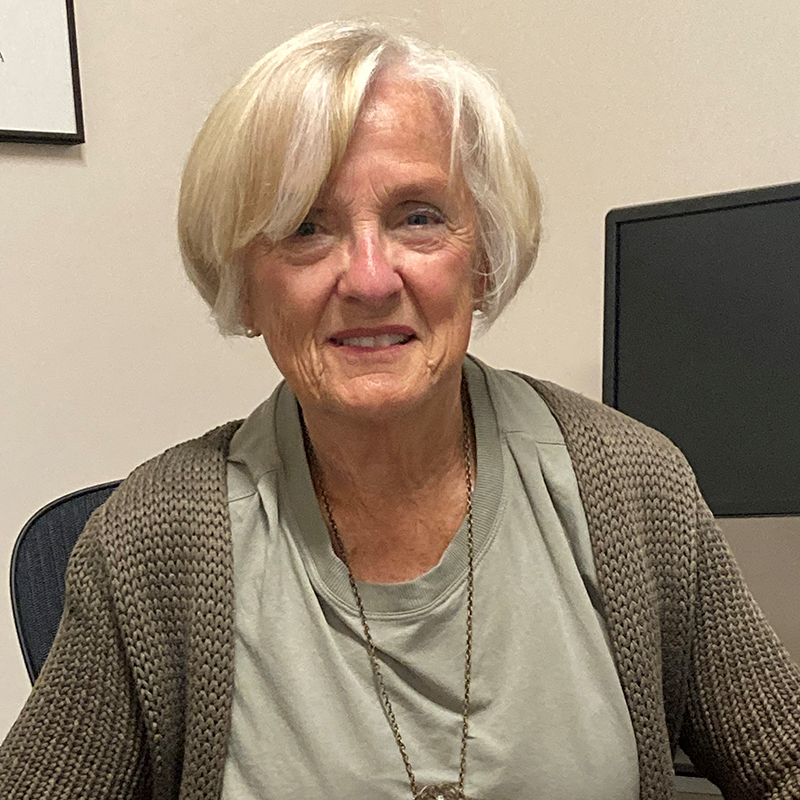
By nature, I tend to be a ‘fixer’ | Marie – SP Volunteer
It’s Personal
Marie is a valuable member of Buckelew Programs’ Suicide Prevention Hotline volunteer corp. Like all who are sanctioned to ‘work the phones,’ Marie had to successfully complete the 40-hour training program. Only those who prove they can effectively apply what they’ve learned through training are permitted to ‘graduate’ and work Hotline shifts.
The Hotline celebrated its 50th anniversary in 2021, having provided crisis intervention to more than 300,000 local residents since its inception. Several of the Hotline volunteers have been with the program for 20 years and more. Many serve because they’ve lived through the suicide of a family member or close friend and are passionate about the cause.
Marie, a retired nurse, has been a long-term supporter of the program. She has also lost two close family members to suicide. “I’d always ask if there was any other volunteer position available besides answering the phones. I was too scared. But this year, I decided it was time to get involved on a deeper level.”
“By nature, I tend to be a ‘fixer,’ she says. “But that isn’t our role. We can’t cure every problem. We can only be with them in that moment. But in that space, we have a tremendous opportunity to make an impact. The ones who call – part of them wants to live.”
“I still get nervous before every shift,”’ she says. “But once I get here, I’m OK.”
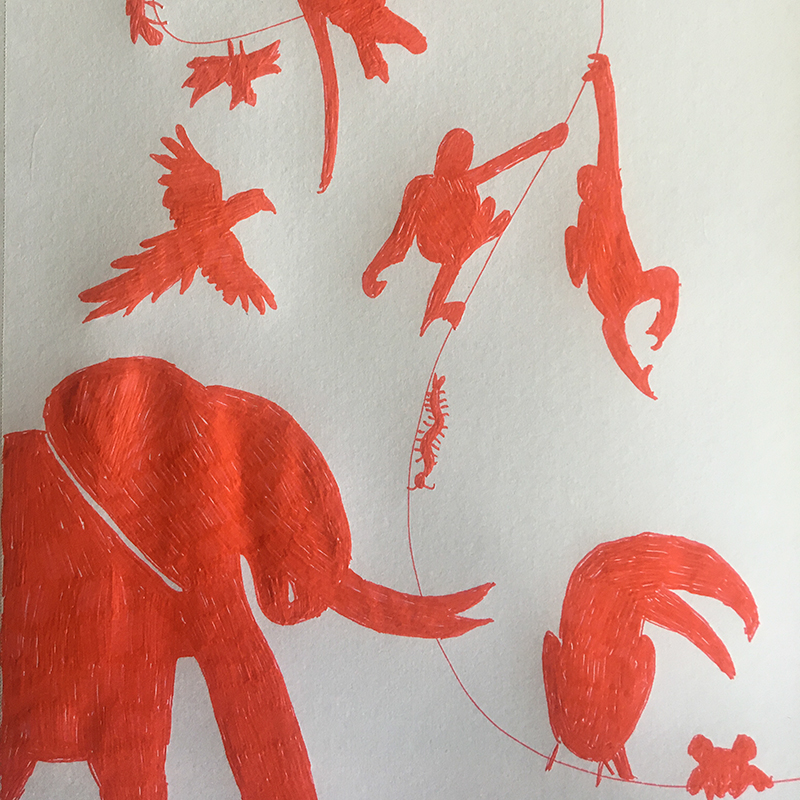
I can be a small part of that world with my drawings | Sophia
Sophia, a Santa Rosa resident, experienced her mental health symptoms (depression) at the young age of 12 and was hospitalized at age 16. While she and her family grappled to understand what was happening and what to do, Sophia’s mental illness continued to ‘color every thought she had,’ and she ended up homeless for several years at age of 24.
Her eventual diagnosis confirmed she was suffering from multiple forms of mental illness and Sophia entered treatment as a young woman. When she first connected with Buckelew Programs (BP) after homelessness, she was living in county-provided housing with roommates who were also experiencing mental health challenges as well as addiction.
“A BP case manager was working with me to apply for independent housing,” she says. “My current living situation was becoming really scary and unmanageable. They worked quickly and helped to successfully move me into a place of my own.”
Seven years later, Sophia is a client with BP’s Sonoma County Independent Living (SCIL) Program and receives case management, which helps her remain stable and independent. “My case manager, Jessie, helps me with practical day-to-day items and planning,” she says. “She’s also emotionally supportive and dependable. I spend a lot of time alone, so I’m always happy to speak with her by phone. We use the phone because of the COVID-19 Pandemic.”
“Sophia is very skillful with regards to utilizing healthy coping techniques to manage her symptoms,” says Jessie. “She has a strong support system, which consists of community support meetings, a nutritionist and a case manager. She is very active in her mental and physical health recovery.”
Along with cooking and her emotional-support pet cat, Sophia enjoys drawing, almost daily.
“Drawing is very therapeutic for me,” she says. “It gives me something to accomplish as well as something to share. I always need to be creative otherwise my mental health suffers. There is a long history of people with mental illness bringing astounding pieces to the art world. I can be a small part of that world with my drawings.”
